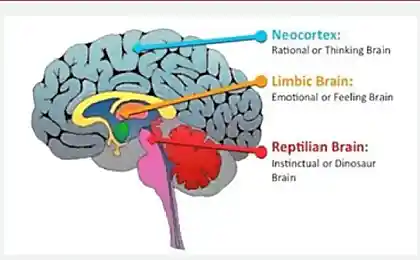406
5 weaknesses that can be turned into a benefit

Many of your professional weaknesses can be turned into advantages. The main thing is to understand how to present them to their friends and potential employers. Here are five such weaknesses.
You are inexperienced: which means you can learn without experiencing and does not pose a threat.
As an Intern, you feel at the bottom. But this may be your position of power: other people are more willing to take you under his wing.
Talented and successful employees in your company may be hesitant to share information with them equal in status but share it with an Intern or a student. When you're in this position, people assume that you do not have enough experience and, therefore, will not perceive you as a threat, a competitor.
Building relationships with such experts, think of yourself as just a curious novice. Don't be aggressive. You can't claim the rights to the best ideas of these people, their work, their jobs. Be patient, proceed enthusiastically, vigorously and consistently.
You are easily distracted: so you have something to share If you are "addicted" to the new information, let it be a catalyst for networking and creating new relationships. Look for people who have no time to take in industry news and other interesting topics, and use its information to learn something new and to share knowledge. Send these people useful or entertaining links. Think of yourself as a curator: you throw them articles and materials that will inspire them, inform them of something new or at least fun.
Author Ryan holiday says: You are so busy, as your mentors, so your time it is possible to spend on the search of useful information. I was for their mentors source for new information, trends, opportunities. I asked about a lot, but tried to give something in exchange. You may forward articles or information about new opportunities to people with whom you haven't met yet, but want to make contact. If you feel comfortable, try. It's certainly better than writing them with a request to give advice or offer to buy them coffee.
You are a narrow specialist: so you have different approaches and points of view.
Career you are interested in, might imply not the experience or education that you have. But do not despair: it is in your power to make something different, unique. Explain to the people with whom you communicate or conducting an interview with you that your specific approach or set of skills takes into account the lack of knowledge of the company, any of its weaknesses or, conversely, the possibility of a new development.
The author of the book The Medici Effect Frans Johansson wrote that the best ideas arise at the intersection of different disciplines. You do not win in a dispute with a man who's actually studied a particular business discipline or have worked for many years in the industry — so don't try. You have your own skills, and maybe your view need company to go to the next level. Think about how familiar ideas and experiences can be applied in the new environment. For example, if you want to get into a tech startup, and now work in a large Corporation, see if there is any processes that you can organize better (a lot of startups and entrepreneurs are very unorganized), or bugs, which will help you to avoid.
Are you afraid of: so you know what is really important planning for the future often drives into paralysis. It seems that your career is stuck. Or the analysis itself enters into a stupor. Anyhow, in this situation it is best to ask yourself what features you are most afraid of. Then take a deep breath and study them. For example, if you want to achieve greater professional freedom, or do you have a great product idea but you are afraid to start their own business and its attendant risks, don't let fear stop you.
Writer Tim ferriss said that "what we fear most is what we most need". He suggests this exercise: When I experience the paralysis or indecision, I write down all the worst scenarios. Very detailed, very specific, very negative scenario. Then in the second column write all the things I can do to prevent them. And then what I can do to expand them back or to minimize damage if these scenarios will begin to be fulfilled. Then it becomes clear that the worst-case scenario very rarely so terrible as you imagined. Then the fear is much easier to handle.
Maybe you will find that not worth the risk that the consequences of the worst-case scenario too serious. Or you can find less radical option, which is easier to be solved. Analysis your fear allows you to clear the fog before my eyes.
You are incompetent: so you can prioritize Not believe it, but even incompetence may be useful: this is a polite way of avoiding certain tasks or activities, to spend time on what you is much stronger (and what really interested).
Entrepreneur and venture investor Marc Andreessen writes: the Best way to ensure that you never asked for something to do is to completely screw this up the first time you are asked. Better yet, simply say: you know that everything will fail — speak confidently and with a clear view, and you will probably be able to come off. Of course, this assumes that there are other, more important things that you just competent.
Writes Jared Sandberg in the Wall Street Journal, "strategic incompetence is a failure of strategy, and a successful failure." But it's important last point of Andritsena: if you are thinking about this method you have to be very competent and helpful in something else. Otherwise you'll just mediocrity. published
Author: Herbert Louis
P. S. And remember, just changing your mind - together we change the world! ©
Source: ideanomics.ru/?p=3892
Case Shlyapnikova
What you need to know about “liquid smoke” or about the carcinogens in smoked meat























